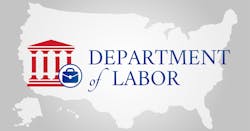Regulatory Update: DOL Rolls Back Contractor Rule
When it comes to the federal government, some final rules turn out to be not so final.
On Jan. 8, while Donald Trump was serving his last days as President, the Department of Labor (DOL) adopted a final rule that simplifies the process for defining a worker as an employee or an independent contractor under the Fair Labor Standards Act (FLSA). Now the Biden DOL has chosen to withdraw that rule, which went into effect on March 8 and was in force for too short a time to have had much if any impact on employers.
The rule would have established an “economic realities” test similar to tests adopted by courts over the years when they were deciding worker classification issues. Such tests define a person who performs services as an independent contractor only if they truly operate their own independent business, which is not economically dependent on the employer.
Even if the rule had been allowed to stand, it would not have overturned stricter independent contractor laws adopted by states like California, New Jersey, Connecticut, Colorado and Massachusetts. It only applied to laws in states that were less strict than the federal standard.
When the final rule was issued in January, Trump’s then Labor Secretary Eugene Scalia commented, “This rule brings long-needed clarity for American workers and employers.” The Biden DOL officials who withdrew the rule in May chose to do so in language contemptuous of the department’s earlier reasoning, claiming it had obviously violated both the FLSA and court precedents.
“By withdrawing the independent contractor rule, we will help preserve essential worker rights and stop the erosion of worker protections that would have occurred had the rule gone into effect,” said Marty Walsh, Biden’s Secretary of Labor. “Legitimate business owners play an important role in our economy but, too often, workers lose important wage and related protections when employers misclassify them as independent contractors.”
The administration also has endorsed the Protecting the Right to Organize (PRO) Act, which already has passed the House of Representatives. If it passes the Senate and becomes law, it would adopt as federal law the standard adopted by the state of California in its AB 5 law, which makes it nearly impossible for many current independent contractors—including truck owner-operators—to maintain that status.
Under the AB 5 standard, no one can be considered an independent contractor who pursues the same line of business as the company contracting their services. That would eliminate the long-held tradition of trucking companies using owner-operators who lease their trucks and driving services to the carriers.
About the Author

David Sparkman
David Sparkman is founding editor of ACWI Advance, the newsletter of the American Chain of Warehouses Inc. He also heads David Sparkman Consulting, a Washington, D.C. area public relations and communications firm. Prior to these he was director of industry relations for the International Warehouse Logistics Association. Sparkman has also been a freelance writer, specializing in logistics and freight transportation. He has served as vice president of communications for the American Moving and Storage Association, director of communications for the National Private Truck Council, and for two decades with American Trucking Associations on its weekly newspaper, Transport Topics.
